Tunisian asylum seekers face image problem
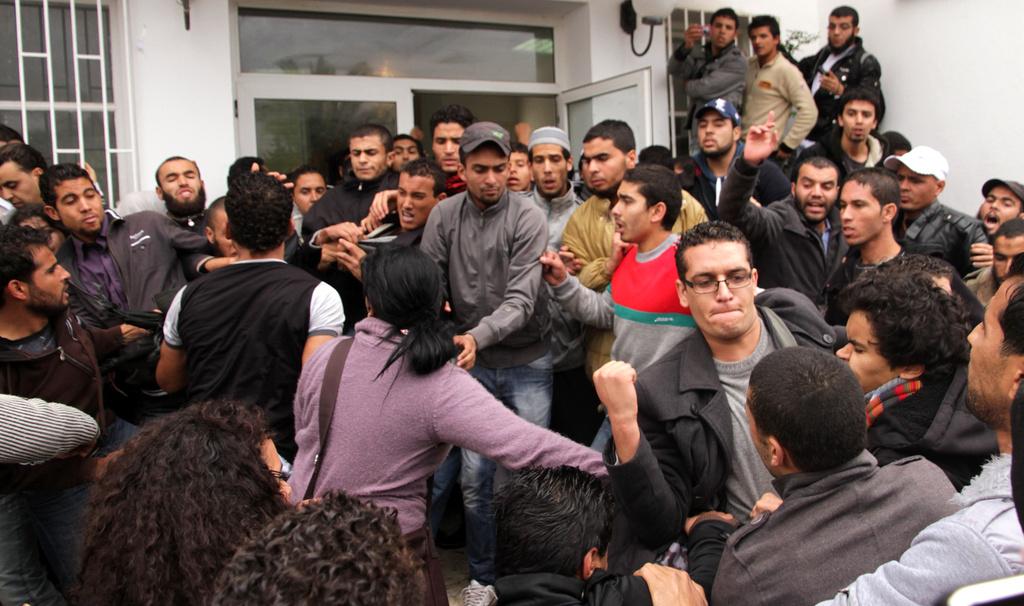
Newly arrived Tunisian asylum seekers have been dubbed criminals in recent press reports and described as “the worst we have had to deal with” by asylum centre staff.
But has this group of Tunisians really earned a reputation as troublemakers and if so, what is going wrong?
Unofficial police statistics from Zurich, published this week in the Tages-Anzeiger newspaper, backed up the alarming headline: “Number of criminal North Africans set to double by the end of the year”.
Swiss Justice Minister Simonetta Sommaruga said her ministry was taking the problem of security very seriously and that the processing of Tunisian asylum requests had been given “top priority”.
The minister has also discussed the problem of Tunisia’s image with the Tunisian ambassador.
The majority of the more than 2,000 Tunisians applying for asylum in Switzerland this year have come through Italy, out of a total of 24,500 Tunisian nationals who landed on the island of Lampedusa in the first half of the year.
According to the Federal Migration Office’s third quarter report on asylum statistics, about half of this total were given a limited-term Italian residence permit on humanitarian grounds.
Moving on
“As very few of these Tunisians have found work in Italy, onward migration has taken place, to France and also to Switzerland,” the report said.
Under the Dublin Accord, established to prevent repeat asylum attempts in the European Union region, these “Italian” Tunisians are not eligible to seek asylum in Switzerland and will be sent back to Italy – their first point of entry to the EU – in due course.
But according to professionals working with asylum seekers, that procedure is taking up to seven or eight months to complete. In the meantime, the Tunisians are attracting bad press and, according to Sommaruga, tarnishing the reputation of asylum seekers in general.
Behind the headlines
Wednesday’s Tages-Anzeiger article stated: “Between January and June the police in canton Zurich dealt with 500 North Africans committing criminal offences. In the previous year there was a total of ‘only’ 700 cases… Tunisians account for almost half [of this year’s cases]”.
A Zurich police spokesman confirmed to swissinfo.ch the figure of 500, which he said had been obtained from the Federal Statistics Office. He did not have information on the crimes involved or how many offenders in total the canton’s police dealt with in that six-month period.
A Federal Statistics Office spokesman said the figures were “not entirely correct”.
“The Federal Statistics Office does not give out… 2011 figures because they are still provisional,” he said. The official police statistics for 2011, which include a breakdown on the nationality and residence status of offenders, will be published next March.
In a year when Switzerland is seeing a marked increase in asylum applications and the federal authorities and cantons are struggling to keep up with the demand for accommodation and services, the negative news about North Africans is helping to fuel local campaigns against new and existing centres.
Bad behaviour?
Apart from criminal activity, Tunisians have also been criticised for general unruly behaviour in the hostels where they are staying.
Roman Della Rossa of the asylum services company ORS Services told swissinfo.ch that North Africans in general and Tunisians in particular were currently causing problems for staff. He said that conditions were challenging overall in ORS’s seven centres as there was no room for newcomers.
“Asylum seekers from North Africa often come across as very demanding. They tend to have an exact idea of life in Switzerland, which seldom comes true. That is frustrating for them and has an effect on daily life in the asylum centres,” Della Rossa said.
“Especially when the people we are looking after are under the influence of drugs and alcohol, it can lead to tricky situations – including violent conflict, but these [fights] mainly happen between asylum seekers,” he added.
Lost cause
In canton Lucerne, Caritas provides accommodation and services for asylum seekers and refugees on behalf of the local government.
“This is nothing to do with Tunisians or the Arab Spring,” Giorgio Leuenberger, director of Caritas Lucerne’s asylum services, told swissinfo.ch, explaining that the group of Tunisians that arrived this year in Switzerland had a very specific background.
“Most of these young men have been through Italy where they were living at the margins of society, sometimes homeless. Many have drug, alcohol or other personal problems. They realise very quickly that they have no chance here,” he said.
Leuenberger added that complaints expressed by Tunisians in the media that Switzerland had done nothing for them and treated them badly was a common reaction among all nationalities frustrated with the asylum procedure.
Signal
Speaking at a migration forum in Geneva on Thursday, Justice Minister Sommaruga told swissinfo.ch that speeding up and improving the Dublin return procedure was one way of dealing with the issue, pointing out that 1,900 people (of various nationalities) had been returned to Italy in the first ten months of this year.
But she said there was still a need to open more accommodation centres to cope with the increased numbers of people seeking asylum this year, “and probably next year”.
“We know that most of them [the Tunisians] are migrants, people looking for work, which is understandable when you see the rate of unemployment in Tunisia. But the asylum system is not meant for that,” the minister said.
“We’ve done everything we can to deal with the Tunisian asylum requests as quickly as possible, to send a signal,” Sommaruga added.
Most of the Tunisians arriving in Switzerland and applying for asylum have come through Italy. According to the Federal Migration Office’s third quarter report on asylum statistics, the landings from Tunisia in southern Italy took place in two phases.
The first phase was from February to April 2011, the second phase from August to mid-September 2011. “While the Italian authorities were able to repatriate the majority of those who arrived in the second phase, the majority of those who landed in the first phase are still in Europe,” the report said.
Figures from the European Union border agency Frontex confirm that 24,500 Tunisians “most of whom were responding to civil unrest in their home country” landed on the Italian island of Lampedusa in the first half of this year, before a bilateral return agreement was signed between Italy and Tunisia.
About half of this total were given an Italian residence permit on humanitarian grounds, according to the Federal Migration Office.
“As very few of these Tunisians have found work in Italy, onward migration has taken place, to France and also to Switzerland.” Some 650 Tunisians applied for asylum in Switzerland in the third quarter of this year (July, August, September).
By the end of October 2011, the total number of Tunisian applicants was 1,971. This compares to 358 for the whole of 2010, before the mass demonstrations that led to the overthrow of the Ben Ali regime began.
(With input from Simon Bradley in Geneva)

In compliance with the JTI standards
More: SWI swissinfo.ch certified by the Journalism Trust Initiative

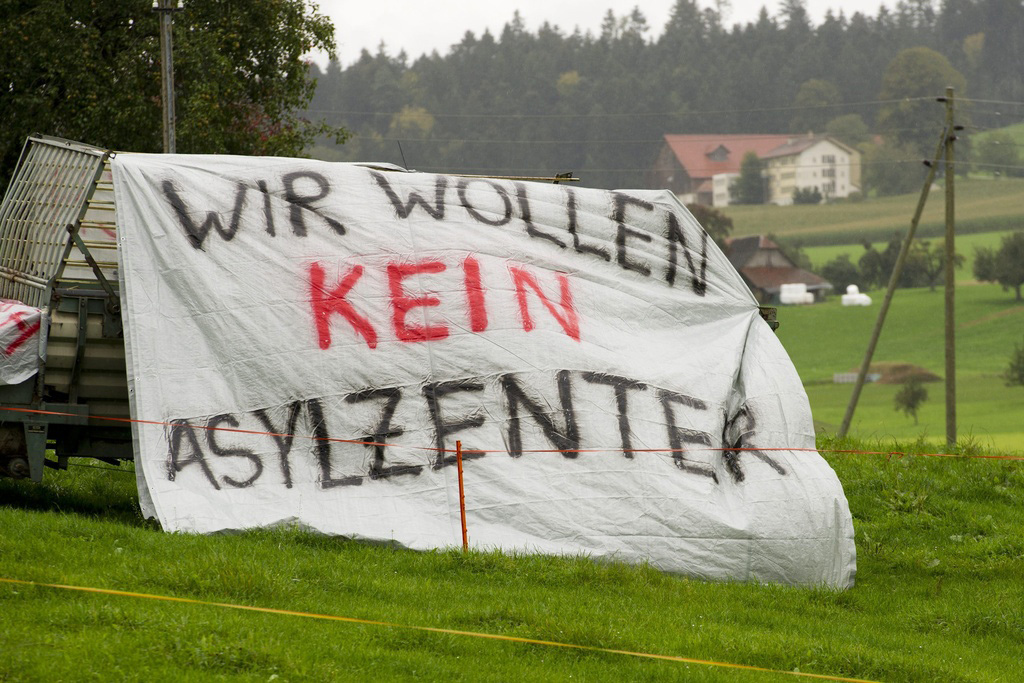
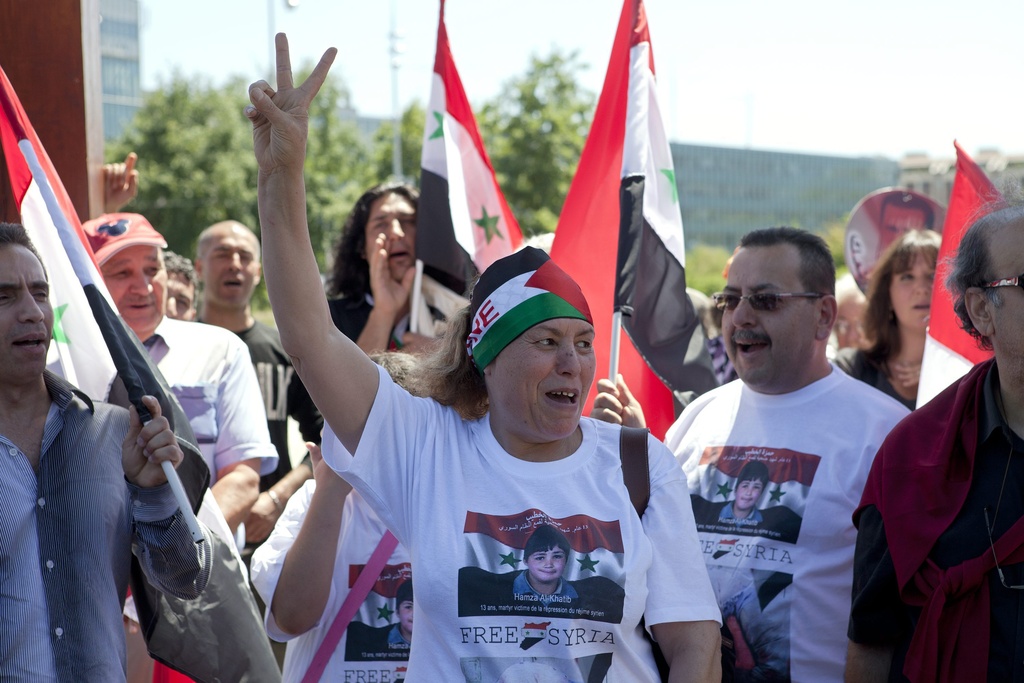
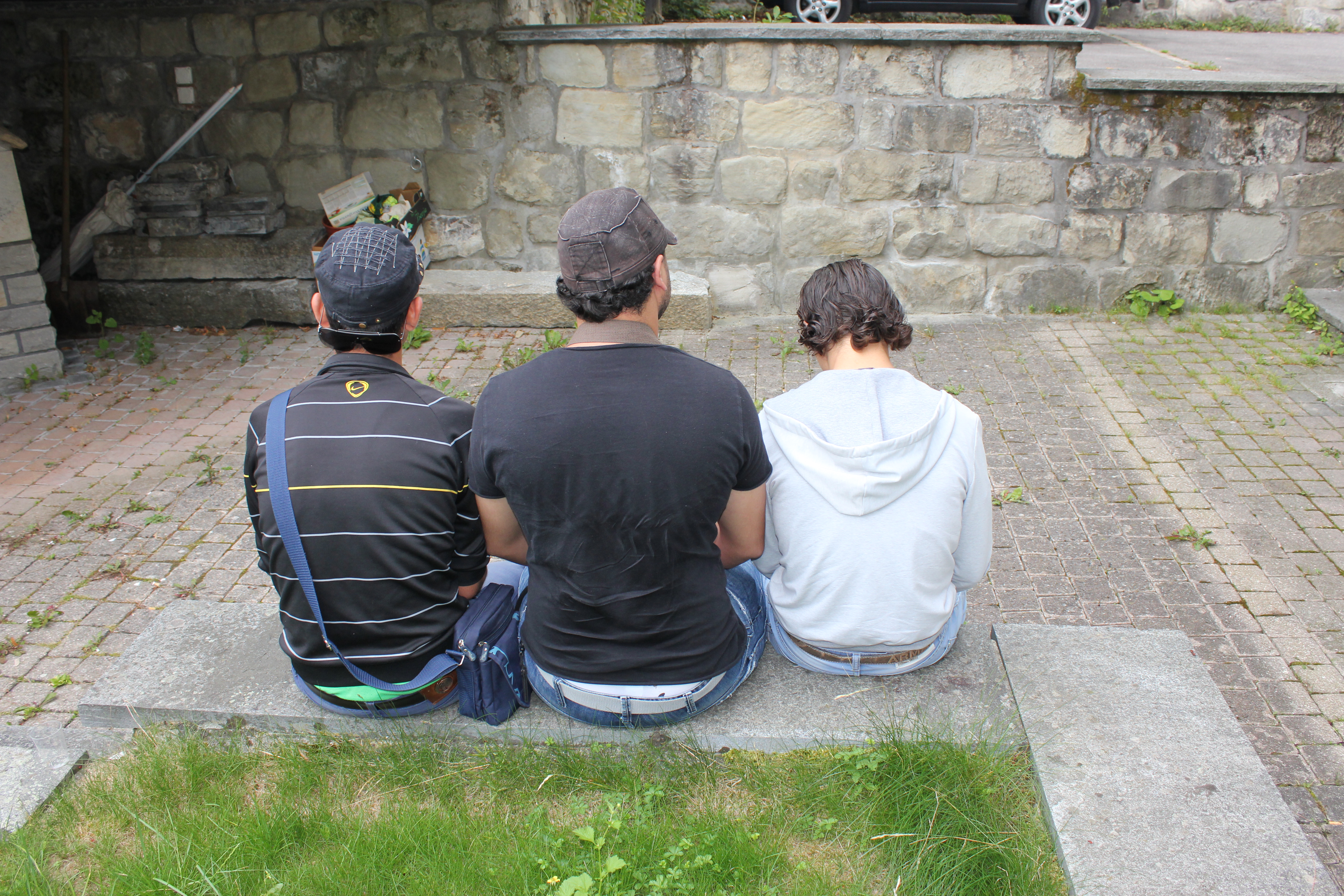
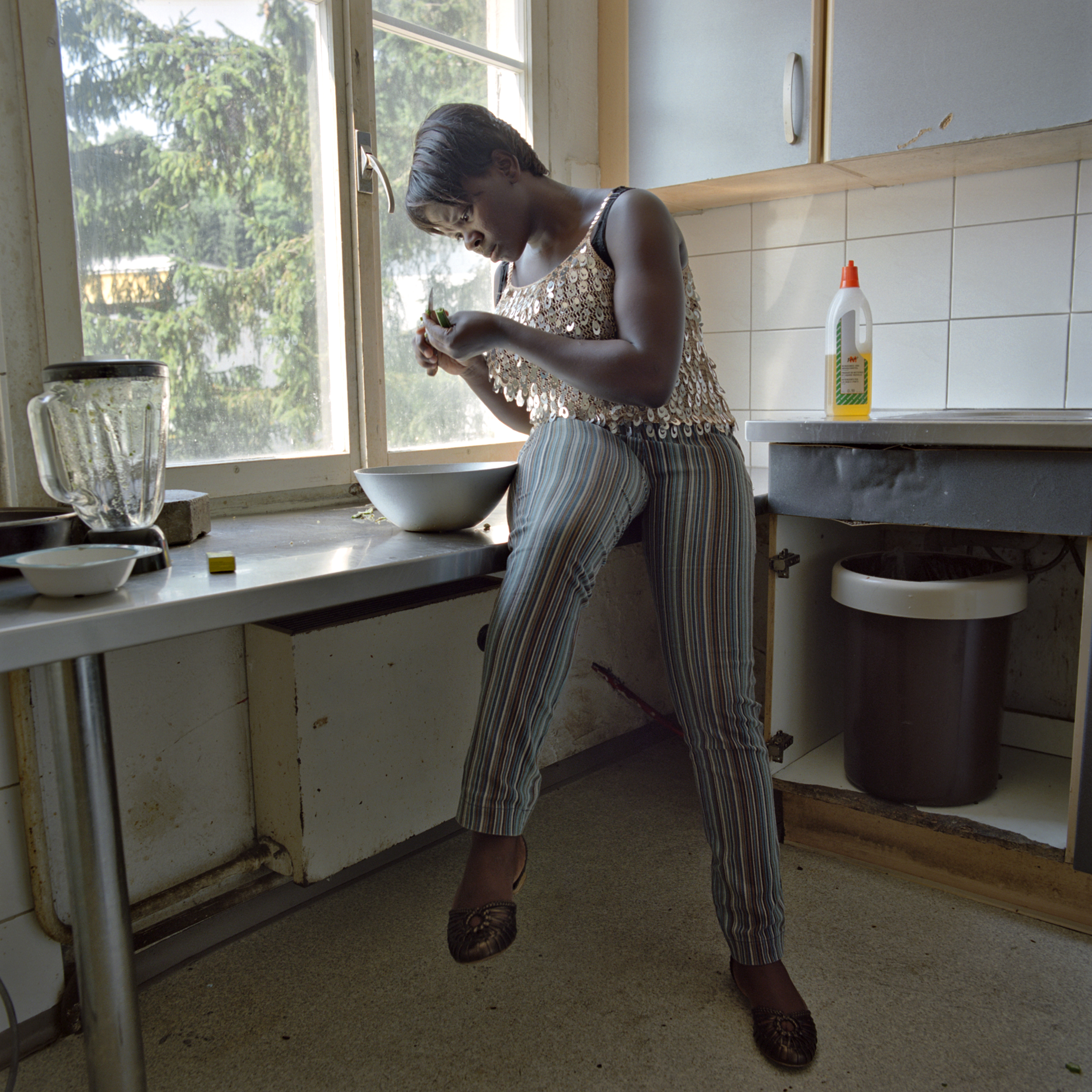
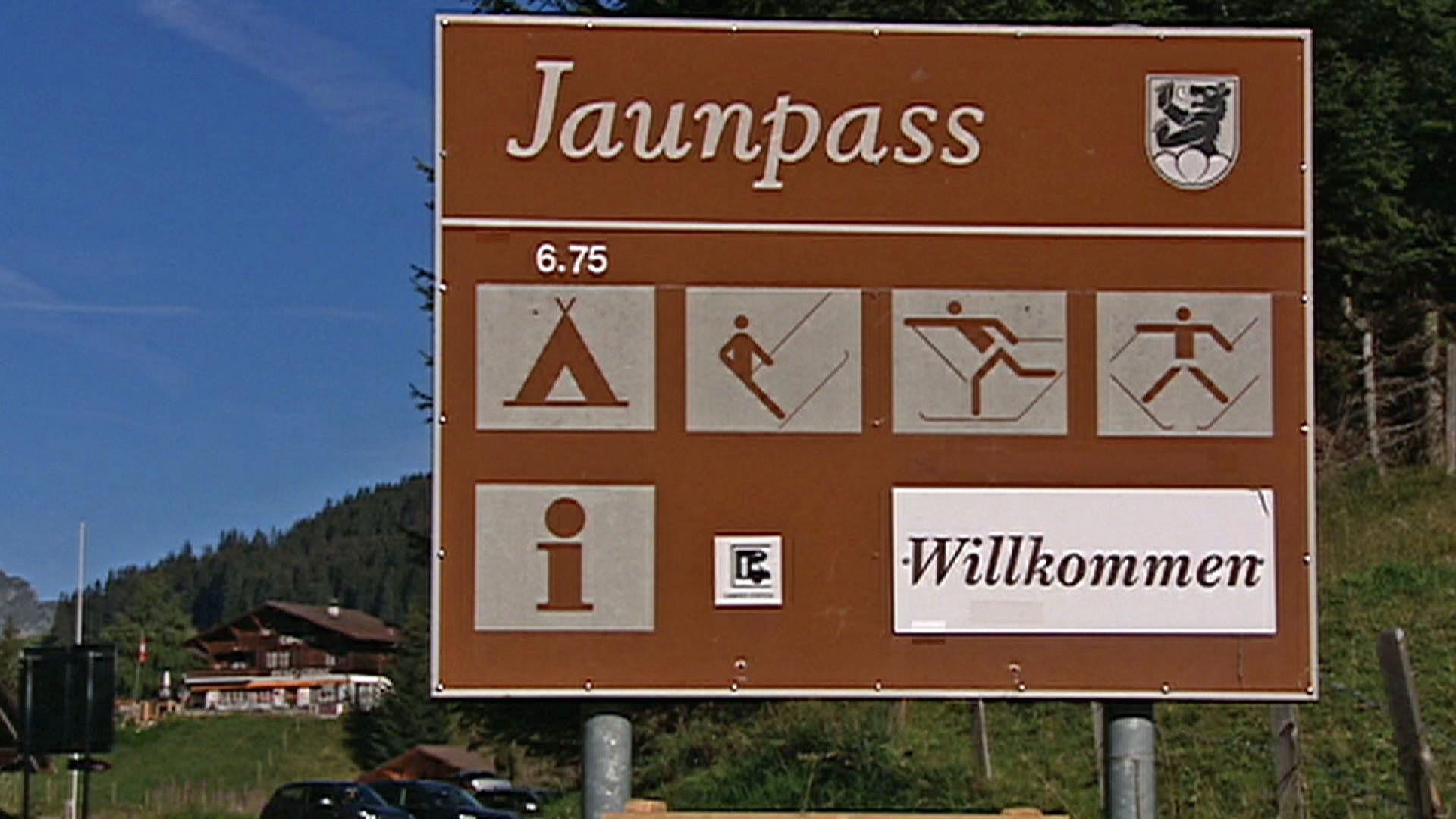
You can find an overview of ongoing debates with our journalists here. Please join us!
If you want to start a conversation about a topic raised in this article or want to report factual errors, email us at english@swissinfo.ch.